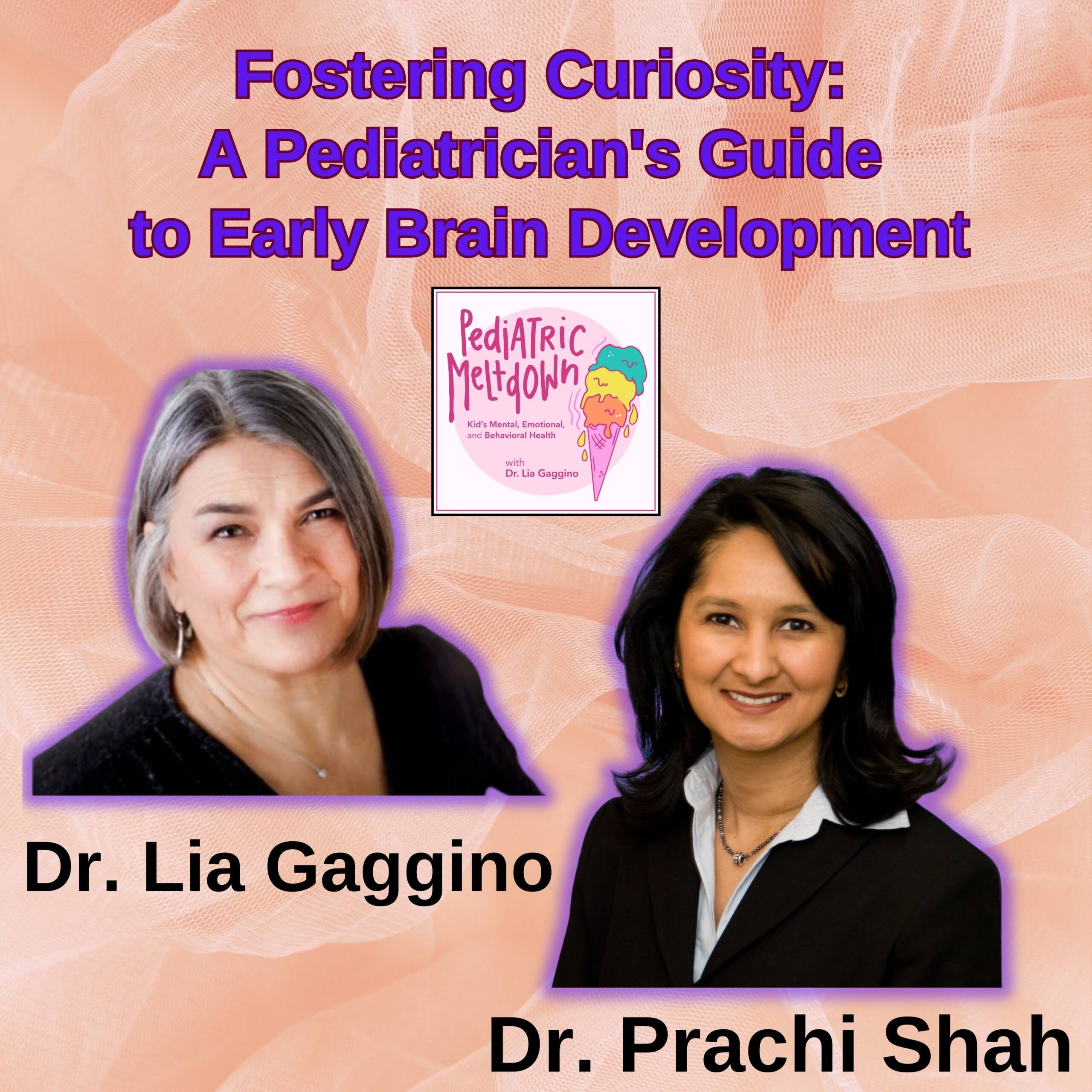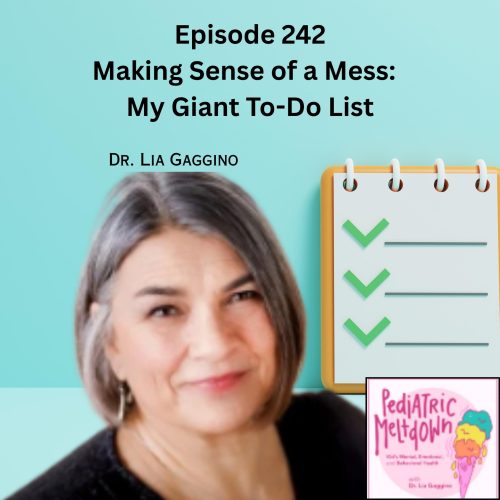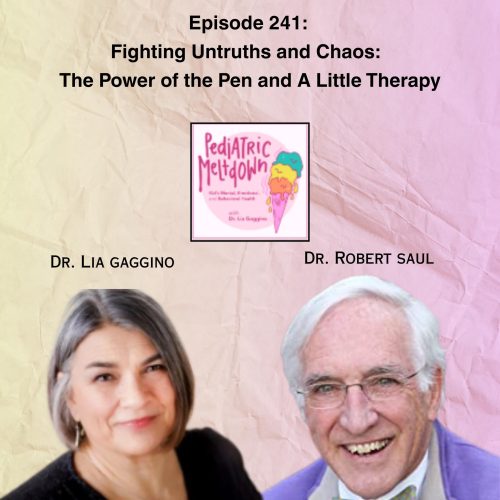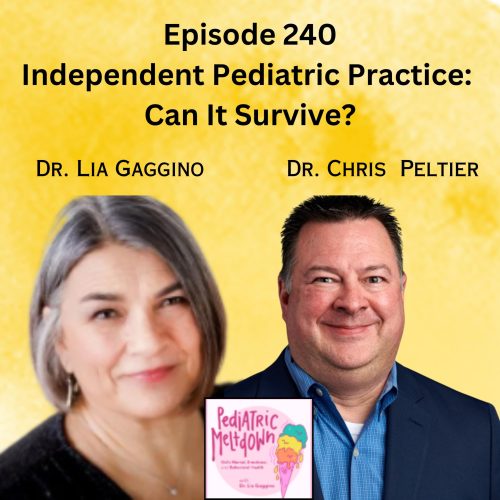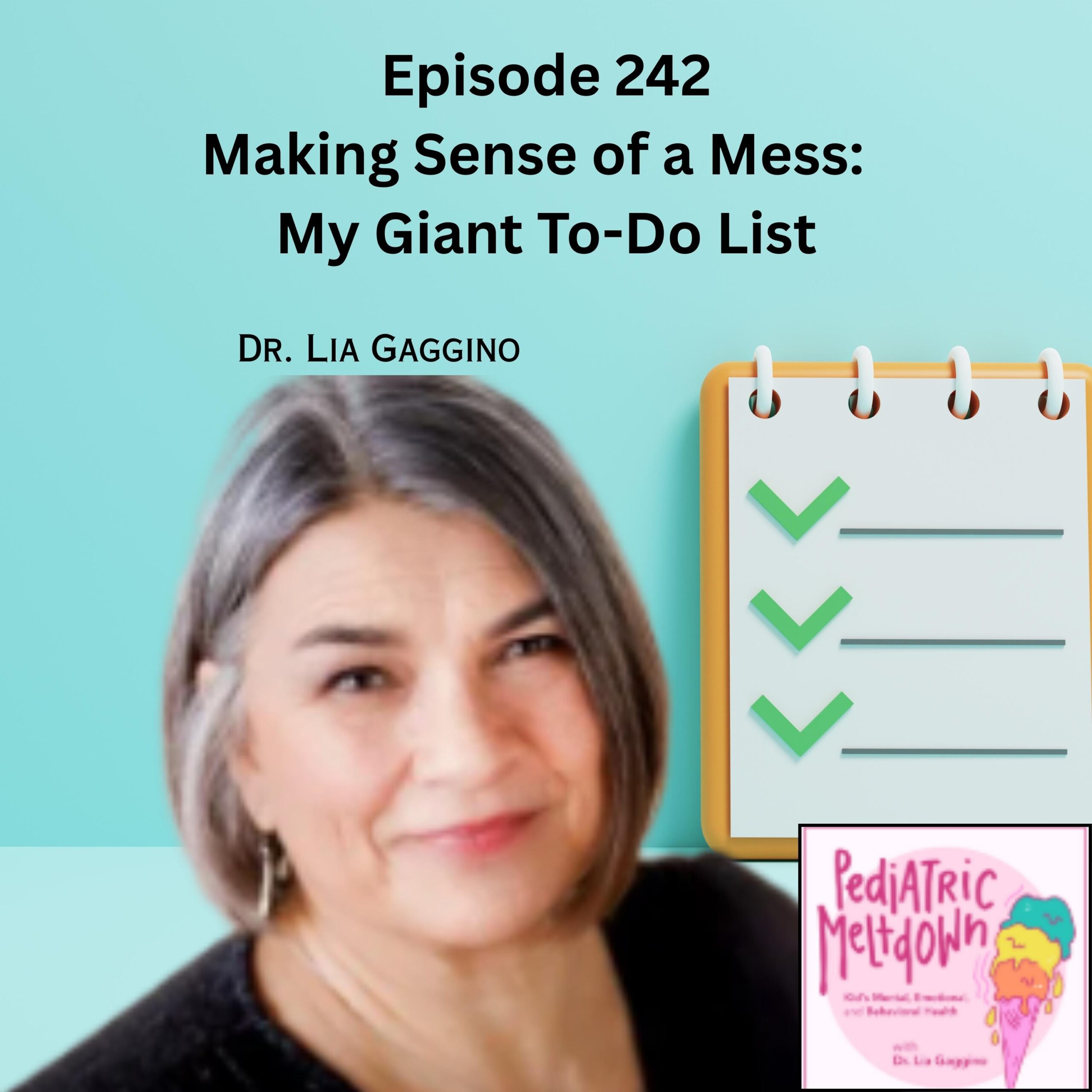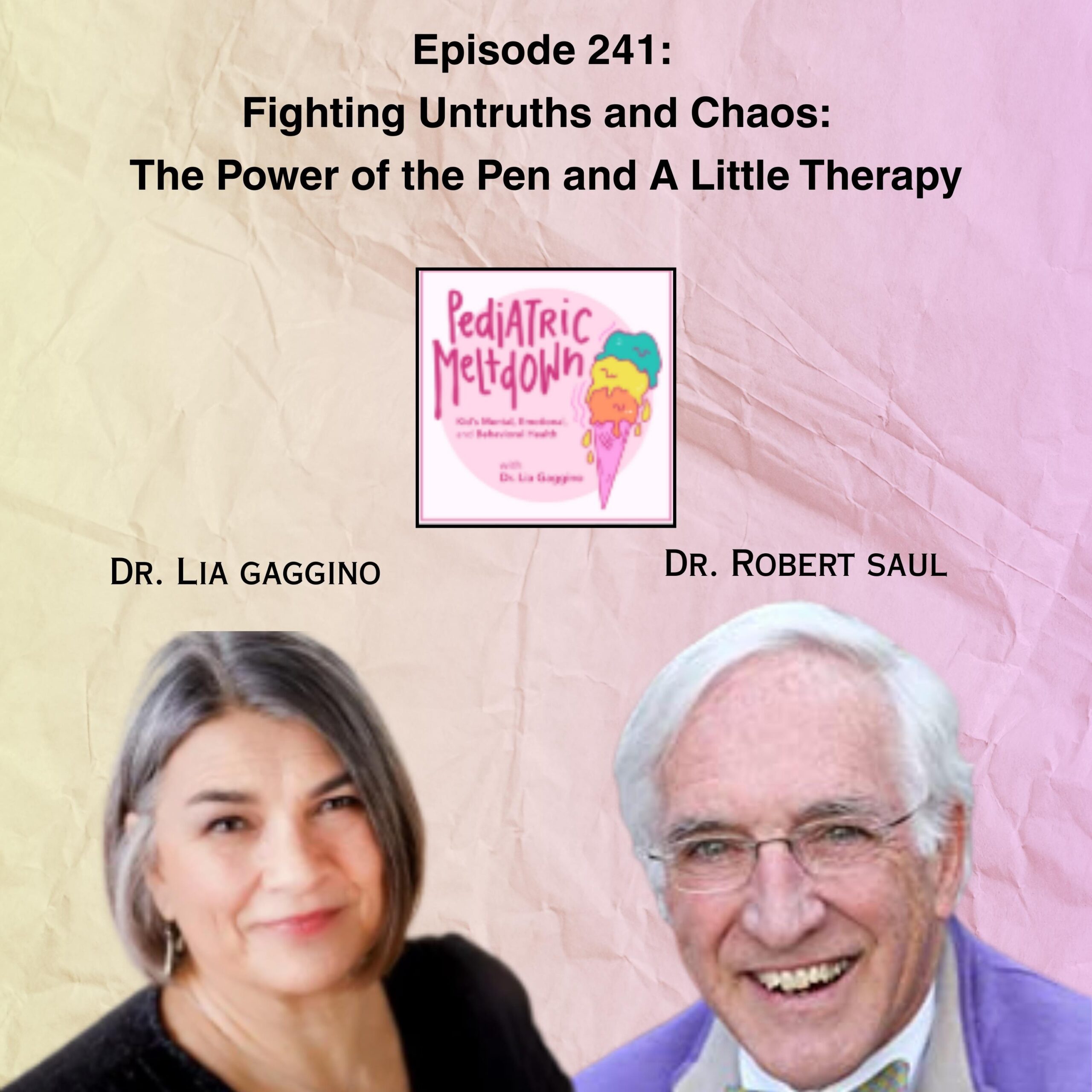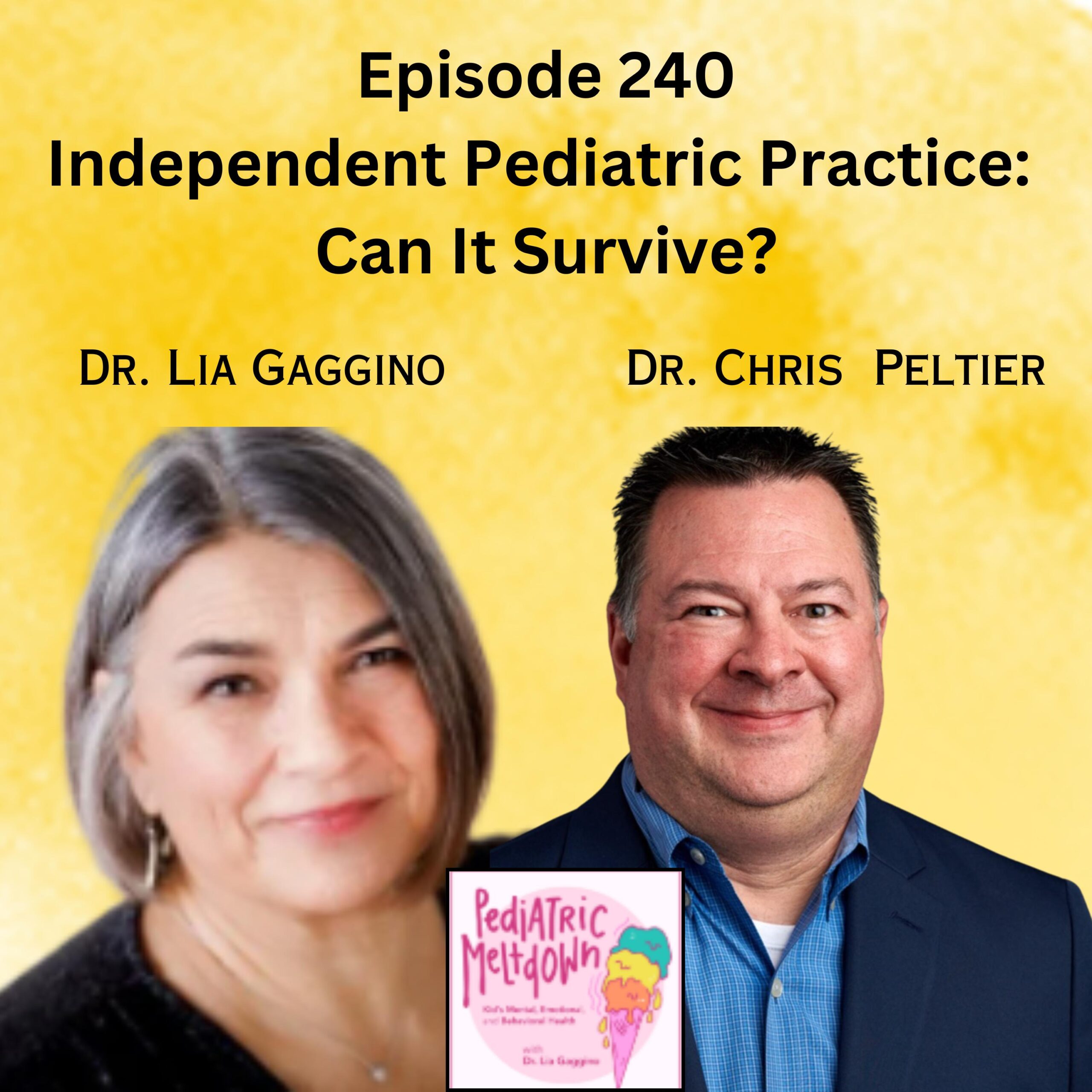Fostering Curiosity: A pediatrician’s Guide to Early Brain Development
What if the key to unlocking your child’s potential lies in their natural curiosity?
In this enlightening episode of “Pediatric Meltdown,” host Dr. Lia Gaggino welcomes developmental pediatrician Dr. Prachi Shah to explore the fascinating world of child development. Together, they unpack the importance of play in child development and reveal strategies to encourage exploration. Dr. Shah shares her expertise on early brain development and cognitive growth. Discover how play and exploration shape a child’s future and learn practical strategies for encouraging your little one’s inquisitive nature.
This episode is a must-listen for parents and caregivers eager to nurture their child’s innate wonder and set the stage for lifelong learning.
[00:33 -15:43] Fostering Curiosity in Young Children: Key Strategies
- Curiosity starts with the child’s intrinsic motivation and captures their attention
- Entering a child’s world helps adults see things with “a new set of eyes”
- Observing nature, like watching insects or plants, stimulates curiosity
- Simple activities, like using a “play right here stick,” can encourage wonder and exploration
[15:44 – 26:32] Impact of Curiosity on Academic Achievement in Early Education
- Higher curiosity at kindergarten correlated with higher academic achievement in reading and math
- At low levels of curiosity, there was lower academic achievement
- Safe, stable, nurturing relationships (SSNRs) provide the foundation for exploratory behavior
- Promoting curiosity can foster academic resilience in children from under-resourced environments
[26:33 -36:22] Early Childhood Curiosity and Parental Interaction
- Children from under-resourced areas hear fewer words, creating a 30-million-word gap by kindergarten
- Frequent conversational exchanges between parents and children are associated with higher curiosity
- High-quality linguistic environments lead to better academic, occupational, and social outcomes
- Serve-and-return conversational exchanges are recommended by pediatric anticipatory guidance
[36:23 – 55:50] Promoting Curiosity in Pediatric Care
- The American Academy of Pediatrics recommends prescribing play at every well-child visit
- Unstructured play time and playful learning with parents are crucial for building cognitive and social-emotional skills
- Safe, stable, nurturing relationships (SSNRs) are foundational for the development of a child’s curiosity
- Pediatricians can encourage parents to engage in scaffolding and special “sunshine time” with their children to boost curiosity
[55:51 – 01:02:58] Closing segment Takeaway
Links to resources mentioned on the show
AAP Resources Early Relational Health: https://www.aap.org/en/patient-care/early-childhood/early-relational-health/
AAP Early Relational Health Implementation Guide: Early Relational Health Guide
Reading Tips from AAP http://Healthychildren.org Falling in Love with Reading..
Reach Out and Read https://reachoutandread.org
Other episodes you may like:
176 ACES and the Power of Positive Relationships
175 Beyond Trauma: Strengthening the Caregiver-Infant Dyad
128 Trauma and Resilience: “Connect Before You Correct”
- Trauma and Resilience: Affiliate!
- Toxic Stress: Safe, Stable, Nurturing Relationships are the Antidote
Key quotes for Twitter:
“And what we found, which was really exciting, is that children who had higher parent reported curiosity at kindergarten had higher academic achievement in reading and math.”…. Dr. Prachi Shah on The Impact of Childhood Curiosity on Academic Achievement
“Because part of what makes curiosity so meaningful is it’s not just the desire to know and the desire to identify or capture new information. It’s the desire to know and then to share that with someone else, especially someone who is meaningful to them.”…. Dr. Prachi Shah on the magic of childhood curiosity
FULL TRANSCRIPTS AVAILABLE UPON REQUEST
THANK YOU FOR YOUR SUPPORT!
Pediatric Meltdown was listed as a Top 20 Pediatric Podcast on FeedSpot.
If you’d like to connect with me, you can find me on LinkedIn, Facebook, and Instagram, or email me at [email protected]. To learn more about me visit https://www.pediatricmeltdown.com
LOVE WHAT YOU HEARD? Leave us a 5-star review so we can continue to provide you with great content. Share this episode and help people know more about children’s health and well-being.

